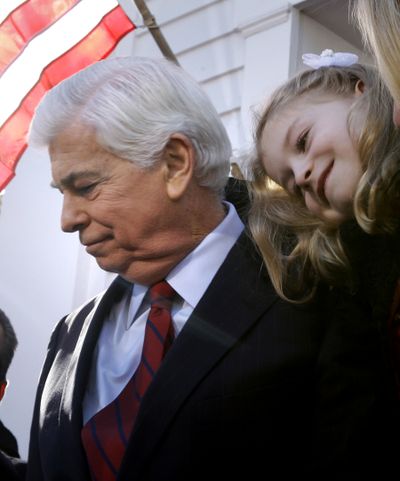Retiring Democrats change game
May open door for GOP to grab seats in mid-2010

WASHINGTON – The decisions of two powerful Democrats to retire from the Senate is a bracing reminder of how dramatically the political climate has changed over the 12 months since President Barack Obama came to power – a shift that has thrown the Democratic Party off balance and turned the politics of raising hope into the politics of managing anger.
The news that Sens. Byron Dorgan, D-N.D., and Christopher Dodd, D-Conn., would not seek re-election in 2010 was the result of different personal and political considerations.
But they point to the forces that could make it easier for Republicans to cut into Democrats’ commanding congressional majorities in the 2010 midterm elections.
Dorgan bowed out in face of a likely tough fight for re-election against a popular governor in a Republican-dominated state – an emblem of how much harder it will be for Democrats this year to replicate their 2008 victories in conservative states and districts. Dodd decided not to run again because of a barrage of controversies that showed how, in an anti-incumbent environment, the political benefit of holding power can be outweighed by the liabilities of its trappings.
To be sure, the anti-incumbent clamor that helped undercut Dodd’s stature also is posing problems for Republicans. They are struggling to harness the energy of anti-establishment “tea party” activists, who are threatening the Republican establishment in party primaries for the Senate in places such as Florida. In that state, the GOP chairman resigned this week under fire from the populist right.
And both parties will be challenged to keep their footing in an election year that promises to be even more volatile than usual. “You have an angry, volatile electorate more up for grabs than usual,” said Peter Fenn, a Democratic political consultant.
But the unstable political environment poses the bigger risk for the party in power.
Historically, the president’s party loses seats in congressional midterm elections. For months, Democrats have seemed resigned to losing seats in 2010 – narrowing but not losing their majority in the House, and almost surely losing the 60-vote Senate majority that allowed them to break GOP filibusters on party-line votes.
The grim outlook grew grimmer in November, when Democratic candidates lost gubernatorial elections in New Jersey and Virginia. In December, conservative Democratic Rep. Parker Griffith of Alabama announced he was switching parties.
Early in the Obama administration, it looked like beleaguered Republicans would face a stampede of congressional retirements. But as the calendar turns, the 2010 exit ramps now are about equally divided between the parties. Ten House Democrats and 14 House Republicans have announced they are not seeking re-election.